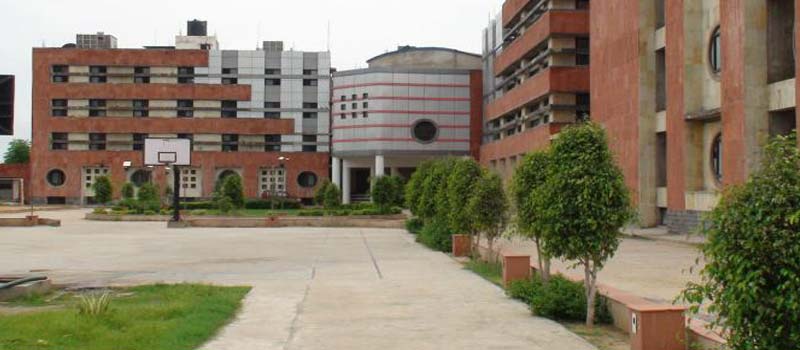In May 2014, the Bhartiya Janta Party (BJP), an ultranationalist Hindu right wing party, came to power in India. The student wing of the BJP is Akhil Bhartiya Vidyarthi Parishad (ABVP), which has its presence in various universities across India.
In February last year, India’s iconic Jawaharlal Nehru University was drowned in tumult after a group of students allegedly raised ‘anti-India’ slogans on campus. The JNU Students’ Union President, Kanhaiya Kumar, along with two other JNU students, Umar Khalid and Anirban Bhattacharya, were taken into police custody and subsequently charged with sedition. All three identify as communists. As footage showing the three of them raising the slogans started doing the rounds on social media and various TV news channels, they were dubbed ‘anti-nationals’ and ‘traitors’. A bounty was placed on Kanhaiya’s head. Umar Khalid, reduced to his immediate identity as a Muslim, was linked to Jaish-E-Mohammad, a radical Islamist terror outfit. The then Union Education Minister, in an impassioned speech in the parliament, spoke bitterly of what had transpired. All three were eventually let out on bail, and a probe into the widely-circulated videos proved that the footage was doctored.
JNU has long been the bastion of the socialist school of thought. Few university campuses are as abuzz with political debates and discussions as JNU. It is a university which as part of its admission policy makes it a priority to take in students from marginalised sections of society, as opposed to just sustaining merit. Sixty per cent of JNU students are female. Nurturing liberal values, critiquing ideas and demanding equality for everyone are part of the very ethos of JNU.
Unsurprisingly, the ABVP has never held much sway there, but with its parent party now in power, it feels emboldened to take to whatever means might be necessary – including circulating misleading nationalistic propaganda to dethrone the left on university campuses.
The BJP Government’s idea of Hindutvawadi nationalism hinges not just on bolstering the Savarna (upper caste Hindus), but on systemically oppressing women, people from marginalised sections of society and Muslims. It is, for this reason, that people like JNU Professor and feminist scholar Nivedita Menon make India’s right-wing so incredibly nervous. Menon suggests that feminism in the Indian context can’t solely be focused on emancipating women. Given India’s historical and cultural complexity, liberating women is inextricably tied to ensuring empowerment for the tribal and religious minorities, Dalits (lower caste Hindus) and people living in strife-torn areas where the Armed Forces are afforded absolute impunity – all of which the Hindu right-wing resents.
Professor Menon was labelled ‘anti-Hindu’, ‘anti-national’ and a ‘Naxalite’ for her views. The JNU administration issued her a warning notice for publicly addressing students on campus. She has had numerous police complaints filed against her in various cities across India for airing her views. Recently, another university professor was suspended because she invited Menon to give a talk at Jodhpur University.
It is evident that education seems to be the government’s favourite propaganda tool. In April last year, the then Education Minister directed the Indian Institute of Technology, renowned for their engineering courses, to start teaching Sanskrit, a language used mostly by Brahmin (Upper-caste Hindu) priests. In the wake of this came the slashing of funds for institutes of Social Sciences. Those who study languages, gender, society and social sciences are known to be more likely to be dissenters, thinkers and protesters. If you reduce their number, you reduce your critics.
In February this year, Ramjas College, a constituent college of Delhi University, held a literary seminar themed ‘Cultures of Protest’. The guest speaker was Umar Khalid. The ABVP issued a warning to the organisers over Khalid’s invitation. Even though Khalid had pulled out, the ABVP reached the venue and started pelting stones at the attendees, critically injuring many. All the while hurling rape threats at women and shouting, ’Bharat Mata ki Jai’: Victory to Mother India.
In response to their violence, Delhi University student Gurmehar Kaur started an online campaign against the ABVP. In the days that followed, she was abused ad nauseam on social media. A BJP MP went to the extent of comparing her with underworld gangster Dawood Ibrahim. A website run by the right wing linked her to ISIS. Interestingly, many of the trolls who threatened Gurmehar with rape and death on Twitter, are followed by the official handle of the Indian Prime Minister. Vitriol and fear were in the air, but in waging this war, Gurmehar made the voices of reason band together.
All the abuse, name-calling, intimidation and threats later, the Indian Liberals stand more invincible than ever. Hindutva, fascism and the ABVP have never had a place in liberal spaces like JNU.
And they never will, for the resistance is here to stay.
We acknowledge the Ngunnawal and Ngambri people, who are the Traditional Custodians of the land on which Woroni, Woroni Radio and Woroni TV are created, edited, published, printed and distributed. We pay our respects to Elders past and present. We acknowledge that the name Woroni was taken from the Wadi Wadi Nation without permission, and we are striving to do better for future reconciliation.
